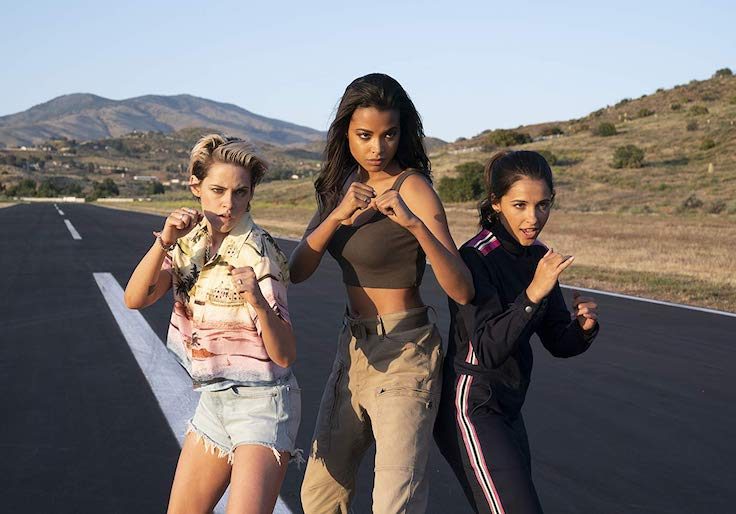You may not have noticed, but movies no longer open on Fridays; almost all major releases begin their runs in theaters with a 7 p.m. showing on Thursday. (Until the late 1970s, by the way, most movies opened on Wednesdays, for no good reason other than that they had always opened on Wednesdays.) This meant that Sony Pictures knew by the time midnight rolled around on November 14, only five hours after its first showings, that they had a monumental turkey on their hands with the new version of Charlie’s Angels.
Nobody went to see it on Thursday night, and by Sunday, it had earned only $8 million—by far the worst performance of a major studio release this year. Nineteen years ago, the first cinematic version of Charlie's Angels with Drew Barrymore and Cameron Diaz grossed $40 million in its first weekend—a value of $60 million today. So basically this new Angels earned one-sixth what its predecessor did.
As it happens, Charlie's Angels is a dull, charmless, witless, and nonsensical piece of work—but moviegoers couldn't have known that without seeing it first. And since when has a movie being lousy been the reason audiences would reject it? In this case, word of mouth didn't keep them away; the very idea of the movie kept them away. Why was the American audience allergic to Charlie’s Angels?
There's a temptation to read its failure ideologically. Indeed, the movie's writer-director, Elizabeth Banks (who also plays a lead role), has sought to do exactly this. She blames misogyny. We should be charitable to Banks, because she spent four years on it, is proud of it, is in pain because of the disaster, and is staring a long and possibly permanent stint in director jail in the face. It's certainly far easier for her to bear the pain if she believes there was nothing she could have done to overcome a male bias against action movies starring women.
But is her argument that America is more misogynistic today than it was when the Barrymore-Diaz Charlie's Angels made bank in 2000? Banks labored to fit the box-office triumphs of Captain Marvel and Wonder Woman into her theory that since they were comic-book movies, they were fundamentally in a male genre. Which suggests Banks has no idea what the original audience for the TV series called Charlie's Angels was. Upon its triumphant premiere in 1976, when it became the show that launched a billion magazine covers, Charlie's Angels was derided as "Jiggle TV"—a vehicle designed to appeal not only to women but to lecherous males who happily tuned in to see Farrah Fawcett, Jaclyn Smith, and Kate Jackson in loose-fitting shirts running around a backlot. "When it got to be number one," Fawcett once said about the show, "I decided it could only be because none of us wears a bra."
Have men changed so much? Do they not want to watch beautiful women running around being sexy? In 2000, they were happy to watch such fare. But the first Angels movie featured three huge stars—not only Barrymore and Diaz but the wondrous Bill Murray—who brought A-list glamour to a property everyone understood in the late 1970s was the ultimate in pop-culture cheesiness. That was Next Level Charlie's Angels. And this one? Well, Kristen Stewart was once in those horrid vampire movies, but that was a while back. And then there are two other women you never heard of, and—what's this!—Banks herself in a part like the one Bill Murray played in 2000. This is a remake of a movie that featured people everyone wanted to see starring people nobody ever heard of, and for good reason.
The 2000 Angels was followed by a sequel in 2003 called Charlie's Angels: Full Throttle. It was terrible. All I remember about it was Demi Moore played the villain. It did OK but it was so expensive to produce that a projected third film in the series (which would have been even costlier) was dropped. Then, in 2011, a new Angels TV series on ABC was launched with great fanfare—and was canceled a month into its run.
So basically in the past 20 years, there was a fun Angels movie, a really bad one, and a flop television series—based on a 40-year-old television show that was viewed as, at best, a guilty pleasure when it aired. The big cheeses at Sony thought that with the Charlie's Angels name they had a leg up over, say, an original movie about three female spies. But here's the thing about intellectual-property plays like Charlie's Angels: What if the IP is rotten?
